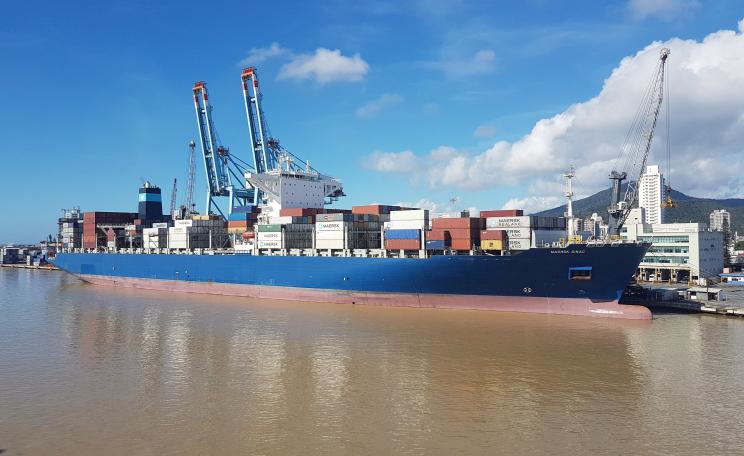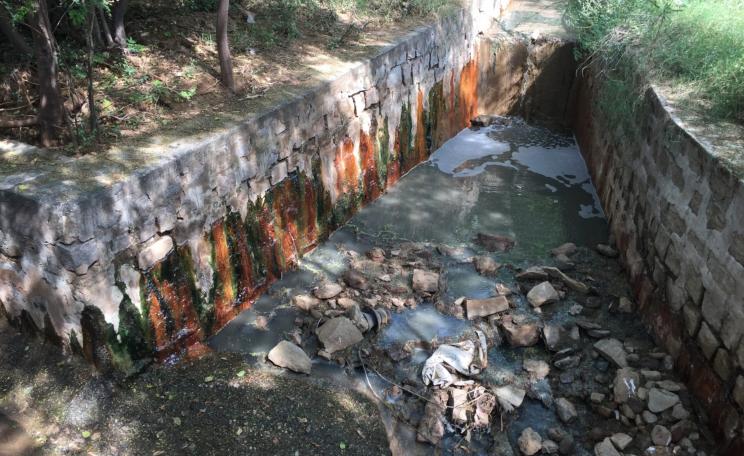-
The world’s biggest supplier of burgers has been fuelling the destruction of the Amazon rainforest by sourcing cattle from ranches linked to deforestation – and British companies are still buying thousands of tonnes of its beef.
This article was published by the Bureau of Investigative Journalism.
Marfrig, a Brazilian meat company that has supplied McDonald’s, Burger King and other huge fast food chains around the world, bought cattle from a farm using deforested land in a part of the Amazon currently ravaged by forest fires.
One of the key causes of those fires is farmers clearing land for eventual beef pasture.
Unprecedented research
Marfrig boasts of its green credentials and recently offered $500m in bonds aimed at environmentally conscious investors. Marfrig claims that none of the cattle it buys come from farms involved in deforestation and that it is the only beef company that can guarantee this.
Yet research by Repórter Brasil, working with the Bureau and the Guardian, traced cattle that the company purchased this year back to a farm that had grazed cows in an area of illegally felled rainforest.
Our investigation has also revealed the full extent of the UK’s involvement in the Amazon crisis. Nearly £1bn worth of beef supplied by Marfrig and two other meat giants which have been accused of deforestation — Minerva Foods and JBS — was directly imported to the UK in recent years.
Unprecedented research to be published today claims that the supply chains for exported beef from these three companies are between them linked to up to 500 square kilometres of deforestation every year.
Responding to our findings, Neil Parish, MP, chair of the Commons environment, food and rural affairs select committee, said: “This investigation shows the importance of supply-chain transparency, from farm to fork. We must think more carefully about the environmental impact of food and the greater degree of control we have with British made products. I’m sure British consumers will not want to be contributing to deforestation in the Amazon.”
Illegal felling
Bill McKibben, the veteran environmental campaigner, told the Bureau: “It’s hard to know what's worse — companies that don't acknowledge our environmental crisis at all, or those that … do so and then don't live up to the promises they make.”
In January, inspectors from Ibama, Brazil’s environmental watchdog, found cattle from Limeira Ranch grazing on illegally deforested land inside a protected region, the Triunfo do Xingu Environmental Protection Area in Pará state. The region has been devastated by the largest number of forest fires in Brazil this year.
The land where the cattle were found had been placed under an official embargo — which prohibits grazing — three years before, due to illegal felling. Embargoes are imposed for environmental violations and serve both as a punishment and protective measure to allow land to recover.
For breaking the embargo, the ranch was fined R$ 1.19m ($300,000) this year. Despite this, documents obtained by Repórter Brasil show that 144 cattle from Limeira Ranch were subsequently supplied to a Marfrig abattoir in Tucumã, also in Pará. The company also bought cattle from the ranch on multiple occasions in late 2018. There is no evidence that the cattle Marfrig purchased were raised on illegally deforested land.
In response, Marfrig did not dispute that the ranch had broken an embargo at the time of the purchase, but said that official checks it carried out using Ibama data at the time had given the ranch the all-clear.
Sustainable transition?
A spokeswoman for Marfrig said: “Ibama issued a negative certificate assuring that on that date nothing was against the supplier … That’s the only way companies — not just Marfrig — can look for official information in real time.”
The company added that it had stopped buying from the ranch as soon as it learnt of the fine. According to documents seen by the Bureau, Ibama had publicly listed the fine on its website two weeks before the cattle purchase.
Ten years ago Marfrig committed “not to purchase any livestock originating from deforested or conservation areas”, and said in 2017 that it was tightening up its protocols for cattle purchases, adopting a system that “blocks, rather than permits, cattle purchases in the case of any doubts”.
This July Marfrig launched a controversial “transition” bond designed to tap into the growing sustainable investment market. Like “green bonds”, which allow environmentally friendly firms to raise cash, bankers have designed transition bonds for companies with the potential to clean up their practices to fund that change.
However, there is no single definition of a “sustainable transition”. Experts have suggested that the absence of minimum standards could leave the bonds open to exploitation by greenwashers – businesses seeking to exaggerate their environmental commitments.
Business as usual
Joshua Kendall, senior environmental analyst at Insight Investment, said that while the Marfrig bond showed credible sustainable objectives and a commitment to improvement, he had not invested. In his opinion, “it doesn't go far enough beyond ‘business as usual’ spending. It also lacks indicators that would give us a sense of whether or not it has made improvements,” he said.
Limeira Ranch is not the only deforestation case that can be linked to Marfrig. According to new figures from Trase — a supply-chain initiative run by the Stockholm Environment Institute and NGO Global Canopy — Marfrig’s beef exports could be linked to up to 100 square kilometres of deforestation a year in Brazil.
Trase also calculated figures for JBS, the world’s biggest meat company, and Minerva Foods, another large global supplier of Brazilian beef. JBS beef exports could be linked to up to 300 square kilometres of deforestation per year, and Minerva Foods linked to up to 100 square kilometres, the research says.
JBS and Minerva both said they did not buy cattle from farms in deforested areas and that they had systems in place to block non-compliant suppliers.
The Trace research mapped supply chains for beef from international markets back to the specific areas of Brazil where the cattle were raised. By cross-referencing these chains with official data on new pastures, deforestation and cattle numbers, the researchers calculated a potential deforestation “risk” — presented as an area in sq km — associated with companies and even specific international markets.
Overall, up to 5,800 sq km of forest — an area four times the size of Greater London — is being felled in the Amazon and other areas annually to be converted into pasture used for cattle farming, according to the Trase report.
Food production
The Bureau has established that Marfrig, along with Minerva Foods and JBS and their subsidiaries, has shipped at least 147,000 tonnes of beef to the UK in the past five years – enough to make 170m burgers a year.
That much meat is worth £1bn. Much of it was canned corned beef destined for supermarkets and other retailers, as well as frozen meat imported for wholesalers and manufacturers.
From there it could end up in hospital dinners, ready meals and fast food, through a chain of little-known catering and food production companies. The Bureau has identified several of these chains, including one that ends with the Ministry of Defence.
Brazilian canned beef from Marfrig or JBS has been found by the NGO Earthsight at Sainsbury’s, Morrisons, Aldi, Lidl and Asda. The Bureau has also found JBS-produced canned beef at the Co-op. That can was marked with a stamp showing the beef had come from Brazil.
But the link is not always so clear, and it can be impossible for consumers to always know if their food is from companies linked to the destruction of the Amazon. JBS canned beef is also sold to NHS Supply Chain, which manages the sourcing and supply of food across the health service, including at hospital trusts.
Weddel Swift, part of the Randall Parker Food group, is hardly a household name, but it supplies meat products to caterers, wholesalers and retailers. The company has bought £30m worth of Brazilian beef since 2015 from Minerva. The group told the Bureau that only 1.5 percent of its sales had come from Brazil and that it has only imported £240,000 worth of beef this year. Weddel Swift also said it believes Minerva is a responsible beef producer.
Bolstering profits
Earthsight discovered that beef from Minerva was being supplied to the Ministry of Defence, but the department could also be feeding soldiers JBS beef as well. Vestey Foods, which holds the catering contract for Armed Forces personnel on active deployment in the UK, buys Brazilian beef from JBS.
The MoD said it did not directly contract with Minerva or JBS, and added that it was working with suppliers “to address any concerns surrounding the recent link between sourcing beef from Brazil and deforestation.”
It is impossible to trace specific cans of Brazilian corned beef or a supermarket cottage pie directly back to fields burned out of the Amazon rainforest. Many retailers insist their supply chains contain only sustainable beef, but continue to bolster the profits of businesses which have been linked to deforestation.
Toby Gardner, the Trase director, said that all those involved in the Brazilian beef chain needed to act: “Buyers, whether traders, processors, retailers, need to demand and invest in transparency systems that can guarantee they are sourcing from areas that have not been recently deforested, whilst at the same time working to support producers' shift to more sustainable and at the same time more productive systems.”
In a statement to the Bureau, Minerva Foods said: “100 percent of Minerva’s purchases come from zero-deforestation areas ... Our sustainability department blocks any suppliers that are not compliant ... which effectively means that Minerva can’t buy any animals coming from these suppliers.”
Cattle procurements
The company also said all of its cattle procurements were completed after checks on the supplier ranches using public government databases on embargoed areas. It said it has blocked more than 2,000 cattle suppliers who were found not to be in compliance with standards.
JBS told us: “We have a zero deforestation policy in the Amazon and prohibit cattle from deforested farms in the region from entering our supply chain ... To date, more than 7,000 potential suppliers have been blocked from our system.”
They added that a recent audit found 100 percent of their cattle purchases were in compliance with their responsible sourcing policies.
Responding to the findings on behalf of supermarkets Aldi, Sainsbury’s, Asda and The Co-op, Leah Riley Brown, of the British Retail Consortium, said: “Illegal deforestation is completely unacceptable, and retailers are collaborating to tackle deforestation and drive greater uptake of certified sustainable products in their supply chains.”
Supply chain
Burger King said: “Our goal is to eliminate deforestation within our global supply chain, and we are working toward this” and that all their suppliers were required to comply with their sustainability and forest protection policies.
McDonald's said it aimed to eliminate deforestation from its global supply chains by 2030 and that it had “made a commitment not to purchase raw material from any farm in the Amazon ... linked with deforestation”.
NHS Supply Chain said: “We are committed to procuring products responsibly and sustainably and actively work with our suppliers on important issues such as sustainability.”
This Author
André Campos, Andrew Wasley, and Alexandra Heal work with the Bureau of Investigative Journalism.







